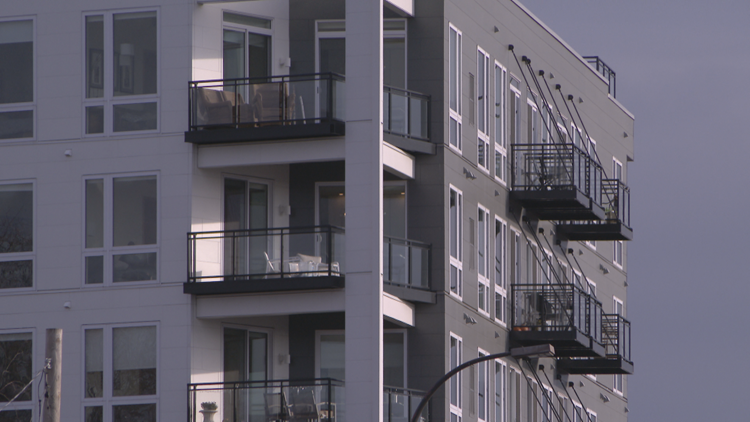MINNEAPOLIS — On Friday morning, two charter amendments were formally introduced to the Minneapolis City Council, both of which would create a path for rent stabilization to be put on the ballot.
Rent stabilization is meant to set limits on the rates at which housing costs can increase. According to research done by local nonprofit Minnesota Housing Partnership (MHP) and cited by the Council members in their proposal, rent was rising in Minneapolis at record levels prior to the COVID-19 pandemic, impacting the 51% of households that rent their homes.
“Simply put, our neighbors are losing their homes because they cannot keep up with the rent,” said Council Member Ellison in a released statement. “This is a housing issue. This is a homelessness issue. And it’s time we clear the path to take serious action to protect our neighbors and stabilize our communities.”
The amendments were introduced by Council Members Ellison and Cam Gordon, and Council President Lisa Bender. They are required by a Minnesota statute, which prohibits rent stabilization unless approved in a general election.
They would allow either the City Council, or the general public of Minneapolis through a petition process, to adopt a rent stabilization law.
Now that the amendments have been formally introduced they will move to the City Council’s Policy & Governance Oversight committee, which will schedule a public hearing. According to a press release, action is required by the Council by the end of February in order to give the Minneapolis Charter Commission 150 days to decide whether or not to place the amendments on the fall 2021 ballot.
The two proposed amendments would:
- Provide the Minneapolis City Council the power to adopt a rent stabilization ordinance or put a rent stabilization ordinance to the voters.
- Provide a petition process for residents to put a rent stabilization ordinance to voters.
The Council Members who proposed the amendment also emphasized that high rent costs disproportionately impact Black, Indigenous and People of Color (BIPOC), as well as immigrant communities.
According to additional research cited in the proposal done by the University of Minnesota, there was not a single neighborhood in Minneapolis where a Black household with the median income for Black renters could afford the median-priced rental unit in 2016.
“I’m grateful for the support of my colleagues in moving this critical work forward,” said Council Member Gordon in the press release. “Tenants in Minneapolis- especially in our Black, Indigenous, and People of Color communities- are hurting, and the Council is taking action to help.”
The Council also unanimously voted to introduce an eviction protections ordinance, which includes a just cause eviction provision as well as a pre-eviction notification provision.
The just cause provision would require landlords to notify their tenants in writing of the reason they are being evicted or their leases are not being renewed, and would establish a limited number of valid reasons for those actions. The pre-eviction notification would require landlords to give notice before filing an eviction.
Currently in Minneapolis, property owners can choose to evict or not renew a tenant’s lease for any reason, forcing the tenant to leave on short notice. They can also file a formal eviction without prior notice to tenants.



